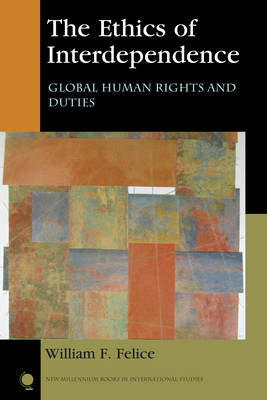New Millennium Books in International Studies
2 total works
Close to half of humanity - 2.8 billion people - barely survive on less than $2 a day. The less developed countries often face economic deprivation caused not by state action or inaction, but by the global economic system itself. In addition, basic human rights as guaranteed by international law defined by the United Nations are violated daily. "The Global New Deal" investigates six key areas central to the achievement of economic and social human rights: the international political economy, the UN, ecosystem protection, racial bias, gender equality, and military spending. The author then introduces what he calls the "global new deal", a set of international policy proposals designed to protect the vulnerable and end needless suffering. These structural reforms provide a viable means by which to safeguard social and economic human rights for all.
In this powerful book, William F. Felice argues that a new range of human rights duties for individuals, nation-states, and global institutions has emerged in our modern interconnected era. He investigates the compelling ideas of ethical interdependence and new global human rights duties in four case studies: mass incarceration in the United States, LGBT rights in Africa, women's rights in Saudi Arabia, and environmental rights in China. Felice argues that in all four cases a "human rights threshold" has been surpassed, and urgent action is needed to address unacceptable levels of human suffering. Beginning with a primer on how the international community through the United Nations has codified international human rights law, Felice explores the conflicts between rights, problems of compliance, and the difficulties that emerge when cultural and religious rights are privileged over the rights of individuals and groups. He shows that a robust normative framework of global governance and global citizenship is central to the actualization of human rights protection for all.

